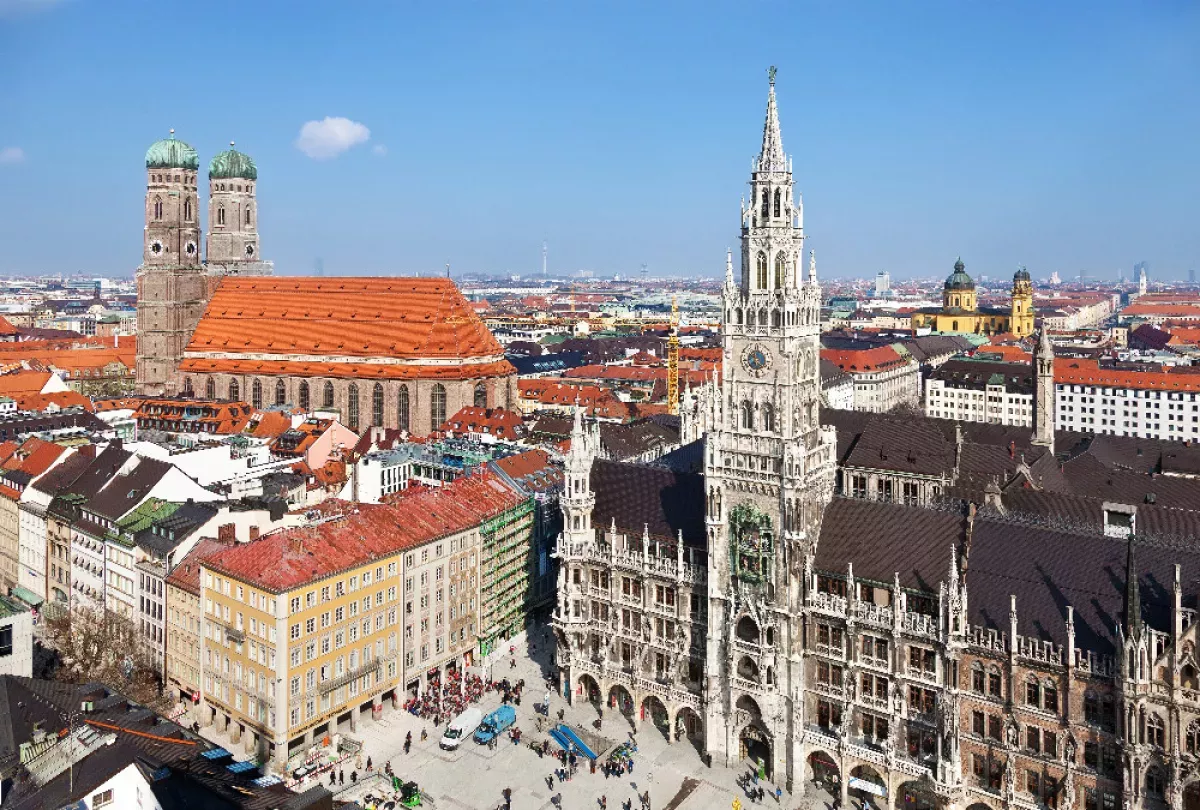Munich, the capital and most populous city of Bavaria, Germany, had a population of 1,604,384 as of November 30, 2024. This makes it Germany's third-largest city, after Berlin and Hamburg, and the 11th-largest in the European Union. Notably, Munich is the largest city in Germany that is not a state in its own right.
1900: Wilhelm Röntgen Appointed Professor
In 1900, Wilhelm Röntgen moved to Munich, where he was appointed as a professor of physics.
1900: Global warming trends observed
In 1900, it was noted that the general trend of global warming with a rise of medium yearly temperatures of about 1 °C (1.8 °F) in Germany between 1900 and 2020 could be observed in Munich as well.
1901: Wilhelm Röntgen Awarded Nobel Prize
In 1901, Wilhelm Röntgen was awarded the Nobel Prize in Physics.
1901: Müllersches Volksbad built
In 1901, the Müllersches Volksbad was built in Munich.
1901: Munich population reaches 500,000
In 1901, the population of Munich reached 500,000.
1903: Oskar von Miller assembles group to charter Deutsches Museum
In 1903, Oskar von Miller assembled a group of engineers and industrialists who chartered the Deutsches Museum.
1905: Opening of Department Stores
In 1905, two large department stores, the Kaufhaus Oberpollinger and the Warenhaus Hermann Tietz, designed by Max Littmann, opened in Munich.
1910: Karl Valentin performs absurdist sketches
Between 1910 and 1940, Karl Valentin wrote and performed in many absurdist sketches and short films that were highly influential, earning him the nickname of "Charlie Chaplin of Germany".
1911: Establishment of Der Blaue Reiter
In 1911, the expressionist group Der Blaue Reiter was established in Munich, with Gabriele Münter among its founding members.
1912: End of Luitpold's Reign
The Prince Regent Luitpold's reign, marked by tremendous artistic and cultural activity in Munich, ended in 1912.
1914: Munich under-industrialized
Prior to 1914, the city of Munich was under-industrialized.
1916: French Air Raids on Munich
During French air raids in 1916, three bombs fell on Munich.
1916: BMW Produced First Aircraft Engine
In 1916, the 'Bayerische Motoren Werke' (BMW) produced its first aircraft engine in Munich.
November 1918: Ludwig III Flees Munich
In November 1918, on the eve of the German revolution, Ludwig III of Bavaria and his family fled the city.
1918: End of Wittelsbach Reign
In 1918, the German revolution of 1918–1919 ended the reign of the House of Wittelsbach in Munich and Bavaria, and saw the short-lived Bavarian Soviet Republic.
1918: BMW AG Founded
In 1918, the public limited company BMW AG was founded in Munich, with Camillo Castiglioni owning one third of the share capital.
February 1919: Murder of Kurt Eisner
In February 1919, after the murder of the first republican premier of Bavaria, Kurt Eisner, by Anton Graf von Arco auf Valley, the Bavarian Soviet Republic was proclaimed.
1919: Bavarian Soviet Republic
In 1919, after the German revolution of 1918-1919, the short-lived Bavarian Soviet Republic was established in Munich.
1919: Bavaria Film Studios founded
In 1919, the Bavaria Film Studios were founded and grew into one of Europe's largest film studios.
1922: BMW Headquarters Relocated
In 1922, BMW relocated its headquarters to a factory in Munich.
1923: Beer Hall Putsch
In 1923, Adolf Hitler and his supporters staged the Beer Hall Putsch in Munich, an attempt to overthrow the Weimar Republic and seize power, which ultimately failed.
1925: The Pleasure Garden
In 1925, Alfred Hitchcock's film "The Pleasure Garden" was produced at Bavaria Film Studios.
1925: Grand opening of Deutsches Museum
In 1925, the Deutsches Museum had its grand opening.
February 1929: Lowest temperature ever measured
On February 12, 1929, the lowest temperature ever measured at Munich's official weather stations was recorded in the Botanic Garden of the city, reaching −31.6 °C (−24.9 °F).
1930: Feinkost Käfer Founded
In 1930, Feinkost Käfer was founded in Munich; the Käfer catering business is now a world leading party service.
1931: Destruction of the Glass Palace
In 1931, the Glass Palace was destroyed in an arson attack, leaving "the most German of all German cities" with no exhibition building.
September 1933: Construction Work Started
In September 1933, construction work began for the Führerbau and the party headquarters (known as the Brown House) in Munich.
1933: Residenze, Hofbräuhaus, Frauenkirche, and Peterskirche Reconstructed
After World War II the Residenze, the Hofbräuhaus, the Frauenkirche, and the Peterskirche were reconstructed to look exactly as they did before the Nazi Party seized power in 1933.
1933: Munich population at 840,901
In 1933, Munich's population was counted at 840,901 inhabitants.
1933: Cabaret scene crushed by Nazis
In 1933, the cabaret scene was crushed when the Nazis seized power, and Liesl Karlstadt was saved from Nazi sterilization by a doctor.
1933: Nazi Party Took Power
In 1933, when the Nazis took power in Germany, Munich became important to them once again and was referred to as the Hauptstadt der Bewegung ("Capital of the Movement").
1934: Publication of Rotmord über München
In 1934, Rudolf Schricker's "Rotmord über München" (Red Murder over Munich) was published, detailing the Red Terror that supposedly preceded Nazi control in Munich.
1938: Munich Agreement Signed
In 1938, the Munich Agreement was signed in the city between the United Kingdom, the Third French Republic, and Nazi Germany, as part of the Franco-British policy of appeasement.
October 1939: Munich-Riem Airport Completed
The Munich-Riem Airport was completed in October 1939.
November 1939: Assassination Attempt on Hitler
On 8 November 1939, Georg Elser planted a bomb in the Bürgerbräukeller in Munich in an attempt to assassinate Adolf Hitler, who had left the building minutes before the bomb went off.
1940: Karl Valentin performs absurdist sketches
Between 1910 and 1940, Karl Valentin wrote and performed in many absurdist sketches and short films that were highly influential, earning him the nickname of "Charlie Chaplin of Germany".
1942: Deportation of Jews
By mid 1942, the majority of Jews living in Munich and the suburbs had been deported.
1943: White Rose Resistance
In 1943, following the Battle of Stalingrad, the White Rose student resistance movement stenciled slogans against Hitler on public buildings in Munich. Core members were later arrested and executed.
April 1945: US Troops Capture Munich
On 30 April 1945, US troops captured Munich, which had been heavily damaged by bombing during World War II.
1945: Largest Subcamp of Dachau
In 1945, Munich was the location of multiple forced labor camps, including the Munich-Allach concentration camp, which was the largest subcamp of Dachau with up to 17,000 prisoners.
October 1946: Refugee Camps in Munich
In October 1946, Munich operated over a thousand refugee camps for 151,113 people due to Polish annexation of Former eastern territories of Germany and expulsion of Germans from all over Eastern Europe.
1949: Establishment of the Federal Republic
Since the establishment of the Federal Republic in 1949, Bavaria has been dominated by the Christian Social Union in Bavaria (CSU) on a federal, state, and local level.
1954: First Television Broadcast
In Munich, the Bayerischer Rundfunk began its first television broadcast in 1954.
1957: Paths of Glory
In 1957, "Paths of Glory" by Stanley Kubrick was produced at Bavaria Film Studios.
1957: Munich Population Surpasses One Million
In 1957, Munich's population surpassed one million.
1960: Distribution Point for Guest Workers
From 1960 to 1973 the old air raid shelter next to platform 11 of Munich Central Train Station was an important distribution point for guest workers (Gastarbeiter).
1963: The Great Escape
In 1963, "The Great Escape" by John Sturges was produced at Bavaria Film Studios.
1963: Munich Security Conference
Since 1963, Munich has been hosting the Munich Security Conference annually in the Hotel Bayerischer Hof.
1966: Winning the Olympic Bid
After winning the bid in 1966, the Mayor of Munich, Hans-Jochen Vogel, accelerated the construction of the U-Bahn subway and the S-Bahn metropolitan commuter railway.
May 1967: Construction of U-Bahn Line
In May 1967, construction work began for a new U-Bahn line connecting the city with the Olympic Park.
1970: Restoration of New City Hall
In 1970, the Munich city council released funds so that the iconic gothic facade and Glockenspiel of the New City Hall (Neues Rathaus) could be restored.
1971: Willy Wonka & the Chocolate Factory
In 1971, "Willy Wonka & the Chocolate Factory" by Mel Stuart was produced at Bavaria Film Studios.
1971: Tantris restaurant opens
In 1971, Eckart Witzigmann teamed up with a Munich building contractor to finance and open the Tantris restaurant in Schwabing.
1971: Filmverlag der Autoren founded
In 1971, the Filmverlag der Autoren was founded in Munich, cementing the city's role in the New German Cinema movement.
May 1972: Completion of Olympic Park Subway
In May 1972, the Olympic Park subway station near the BMW Headquarters was completed, three months before the opening of the 1972 Summer Olympics.
1972: Munich Massacre
During the 1972 Summer Olympics, 11 Israeli athletes were murdered by Palestinian terrorists in the Munich massacre, when gunmen from the Palestinian "Black September" group took hostage members of the Israeli Olympic team.
1972: Munich hosted the Summer Olympics
In 1972, Munich hosted the Summer Olympics, marking a significant event in the city's history.
1972: Olympia Schwimmhalle used for Summer Olympics
The Olympia Schwimmhalle was one of the public sporting facilities used during the 1972 Summer Olympics.
1973: Distribution Point for Guest Workers
From 1960 to 1973 the old air raid shelter next to platform 11 of Munich Central Train Station was an important distribution point for guest workers (Gastarbeiter).
1974: Reconstruction of Neue Pinakothek begins
In 1974, the Neue Pinakothek began a complete reconstruction, like other German museums.
1979: Freddie Mercury lived in Munich
In 1979, Freddie Mercury started living in Munich until 1985.
1981: Das Boot
In 1981, Wolfgang Petersen's film "Das Boot" was produced at Bavaria Film Studios.
1981: Reconstruction of Neue Pinakothek completed
In 1981, the Neue Pinakothek completed its reconstruction.
July 1983: Highest temperature ever measured
On July 27, 1983, the highest temperature ever measured at Munich's official weather stations was recorded in Trudering-Riem, reaching 37.5 °C (100 °F).
1984: The Neverending Story
In 1984, Wolfgang Petersen's "The Neverending Story" was produced at Bavaria Film Studios.
1985: Freddie Mercury filmed music video
Freddie Mercury, who lived in Munich from 1979 to 1985, filmed the music video for the song "Living on My Own" at the travesty nightclub Old Mrs. Henderson during his 39th birthday party.
1990: Red-Green alliance formed
In 1990, a Red-Green alliance was formed in Munich, which lasted until 2014.
1992: Franz Josef Strauss International Airport
In 1992, Franz Josef Strauss International Airport replaced the smaller Munich-Riem Airport.
1992: Reform of administrative boroughs
Since the reform of 1992, Munich is divided into 25 administrative boroughs (Stadtbezirke), which are further subdivided into 105 statistical areas.
1992: Munich Airport Commenced Operations
The Munich Airport, named in honor of Franz Josef Strauss, commenced operations in 1992.
1993: FIBA EuroBasket final stages held in Munich
In 1993, Munich hosted the final stages of the FIBA EuroBasket, where the German national basketball team won the gold medal.
1995: Union Move
From 1995 to 2001, Munich was home to the Union Move, one of the largest technoparades in Germany.
1998: Strategic development plan passed
In 1998, Munich's strategic development plan ("Perspektive München") was passed. LaSie is aligned with the strategic development plan.
2001: Union Move ended
From 1995 to 2001, Munich was home to the Union Move, one of the largest technoparades in Germany, which ended in 2001.
2001: KulturGeschichtsPfade
Since 2001, historically interesting places in Munich can be explored via the List of cultural history trails in Munich (KulturGeschichtsPfade).
2002: Economic prospects
Munich topped the ranking of the magazine Capital in February 2005 for the economic prospects between 2002 and 2011 in 60 German cities.
2003: Terminal 2 Opened
In 2003, Lufthansa opened its second hub at Franz Josef Strauss International Airport when Terminal 2 was opened.
February 2005: Capital Magazine Ranking
In February 2005, Munich topped the ranking of Capital magazine for economic prospects between 2002 and 2011 in 60 German cities.
2005: Passenger Traffic Relocated
After 2005, passenger traffic of nearby Augsburg Airport was relocated to Munich Airport.
2005: Theodor W. Hänsch Nobel Prize
In 2005, Theodor W. Hänsch was awarded the Nobel Prize.
2006: Concerns about Particulate Matter
As of 2006, the Munich city council was concerned about levels of particulate matter (PM), especially along the city's major thoroughfares.
2006: Average hourly wage
In 2006, Munich blue-collar workers enjoyed an average hourly wage of €18.62 (ca. $20).
2006: Munich hosts Football World Cup matches
In 2006, Munich was one of the host cities for the Football World Cup, with matches held in the Allianz Arena.
2006: Munich hosts matches in the 2006 FIFA World Cup
Munich hosted matches in the 2006 FIFA World Cup.
2007: Purchasing power
As of 2007, among German cities with more than 500,000 inhabitants, purchasing power was highest in Munich (€26,648 per inhabitant).
2007: Most Expensive Major City
In 2007, Mercer HR Consulting ranked Munich as the 39th most expensive city in the world and the most expensive major city in Germany.
2007: Ecological Restoration of River Isar
In 2007, the ecological restoration of the river Isar in the urban area of Munich was awarded the Water Development Prize by the German Association for Water, Wastewater and Waste.
March 2008: Transrapid Cancellation
In March 2008, the magnetic levitation train (Transrapid) project was cancelled due to cost escalation and after heavy protests.
2008: Oberpfaffenhofen Air Station
In 2008, the Bavarian state government granted a licence to expand Oberpfaffenhofen Air Station for commercial use.
October 2009: Business Flights Permit Confirmed
In October 2009, a regional judge confirmed the permit allowing up to 9725 business flights per year to depart from or land at Oberpfaffenhofen.
2009: Global 500 cities
In 2009, Munich was listed in 8th position in the breakdown by cities proper of Global 500 cities.
September 2011: Munich considers bidding for Winter Olympics
In September 2011, DOSB President Thomas Bach confirmed that Munich would bid again for the Winter Olympics in the future, although these plans were later abandoned.
2011: Quality of Life Ranking
A 2011 survey by Mercer HR Consulting ranked Munich as 4th among the top 10 cities with the highest quality of life worldwide.
2011: LaSie passed in response to housing crisis
In 2011, Munich's LaSie ("Langfristige Siedlungsentwicklung") was passed in response to the acute housing crisis. LaSie defines three priorities for the construction of residential housing in Munich.
2011: Economic prospects
Munich topped the ranking of the magazine Capital in February 2005 for the economic prospects between 2002 and 2011 in 60 German cities.
2011: Fifth Anniversary of Norway Attacks
On the fifth anniversary of the 2011 Norway attacks an active shooter perpetrated a hate crime in Munich.
2012: Archaeological Discoveries
In 2012, archaeological excavations at Marienhof Square in Munich, conducted in advance of the S-Bahn expansion, uncovered shards of vessels from the 11th century, suggesting that the settlement of Munich predates the Augsburg Arbitration of 1158.
2013: Muslim population in Munich
In 2013, according to the Munich Statistical Office, approximately 6.9% of Munich's population was Muslim.
2014: CSU-SPD majority
From 2014 to 2020, a CSU-SPD majority interrupted the Red-Green alliance in Munich.
2014: Dieter Reiter elected mayor
In 2014, Dieter Reiter from the Social Democratic Party of Germany (SPD) was elected as the mayor of Munich.
June 2015: Population Surpassed 1.5 Million
By June 2015, Munich's population surpassed 1.5 million, an increase of more than 20% in 10 years.
2015: Kultfabrik Closed
At the end of 2015, the Kultfabrik, a former industrial complex converted into a large party area near München Ostbahnhof, was closed to convert the area into a residential and office area.
2015: Public Transport in Munich
In 2015, the transport modal share in Munich was 38 percent public transport, 25 percent car, 23 percent walking, and 15 percent bicycle and the public transport system delivered 566 million passenger trips.
November 2016: City council concludes on climate change
In November 2016, the Munich city council officially concluded that further increases in medium temperature, more heat extremes, a rise in hot days and nights, changes in precipitation patterns, and more heavy rain instances were expected due to ongoing climate change. The city decided to support a study with the German Meteorological Service to gather local weather data for adaptation and climate protection planning.
2016: EHC Red Bull München wins DEL Championship
In 2016, EHC Red Bull München won the Deutsche Eishockey Liga (DEL) Championship.
2016: Munich Shooting
In 2016, the Munich shooting targeted people of Turkish and Arab descent.
December 2017: Religious affiliations in Munich
As of December 31, 2017, statistics on religious affiliations in Munich indicated that 31.8% of inhabitants were Catholic, 11.4% were Protestant, 0.3% were Jewish, and 3.6% were members of an Orthodox Church.
2017: EHC Red Bull München wins DEL Championship
In 2017, EHC Red Bull München won the Deutsche Eishockey Liga (DEL) Championship.
2018: Bavarian state election
After the 2018 Bavarian state election, Munich was divided between nine constituencies in the Landtag of Bavaria, with specific composition and representation for each.
2018: EHC Red Bull München wins DEL Championship
In 2018, EHC Red Bull München won the Deutsche Eishockey Liga (DEL) Championship.
2018: Munich bids for Winter Olympics but loses
In 2018, Munich bid to host the Winter Olympic Games but lost to Pyeongchang.
2018: High Standard of Living
In 2018, Munich had a high standard of living, ranking first in Germany and third worldwide in the Mercer survey. It was also named the world's most liveable city by Monocle's Quality of Life Survey.
March 2020: Mayoral election held
On March 15, 2020, Munich held its most recent mayoral election, with a runoff held on March 29.
July 2020: Unemployment Rate
In July 2020, Munich had the lowest unemployment rate (5.4%) of any German city with more than a million people.
2020: Governing coalition formed
After the 2020 election, the governing coalition in Munich consisted of the Greens and the SPD, as well as Volt and the Pink List.
2020: Dieter Reiter re-elected mayor
In 2020, Dieter Reiter was re-elected as the mayor of Munich.
2020: Global warming trends observed
In 2020, it was noted that the general trend of global warming with a rise of medium yearly temperatures of about 1 °C (1.8 °F) in Germany between 1900 and 2020 could be observed in Munich as well.
2021: Michelin Guide Stars
In 2021, Munich had 11 restaurants awarded with one or more Michelin Guide stars.
2022: Munich population reaches 1.5 million
In 2022, the population of Munich reached 1.5 million.
December 2023: Munich population statistics
In December 2023, Munich had a population of 1.58 million, with 477,855 foreign nationals residing in the city.
2023: Foreign Residents in Munich
In 2023, 30.1% of Munich residents were foreigners, and 19.4% were German citizens with a migration background from abroad.
2023: EHC Red Bull München wins DEL Championship
In 2023, EHC Red Bull München won the Deutsche Eishockey Liga (DEL) Championship.
November 2024: Population of Munich
As of November 2024, Munich's population was 1,604,384, making it the third-largest city in Germany.
2024: Schloss Blutenburg opens as children's library
In 2024, Schloss Blutenburg (Blutenburg Castle) opened as a children's library, but visitors may tour the late-Gothic Blutenburg Castle Church built on the same grounds.
2026: TGV Trains
Starting in 2026, TGV trains (Munich–Paris) will stop at Munich Central Train Station.
Mentioned in this timeline
Germany officially the Federal Republic of Germany is a nation...
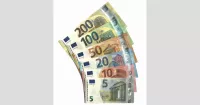
The euro is the official currency of the eurozone which...

War is defined as an armed conflict involving the armed...
Climate change encompasses global warming and its far-reaching effects on...
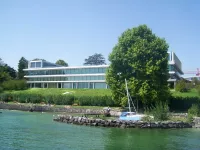
UEFA the Union of European Football Associations governs football in...
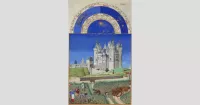
September is the ninth month of the year in the...
Trending

2 hours ago Priyanka Chopra stuns in Dior and Gaurav Gupta at 'The Bluff' premiere.
2 hours ago Puerto Vallarta: Vehicle Fires and Roadblocks Disrupt Sunday Morning
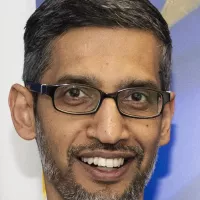
2 hours ago Sundar Pichai envisions AI's transformative potential, focusing on India and global connectivity.

2 hours ago Rhys Hoskins Reportedly Set to Join Cleveland Guardians After Phillies Departure.

2 hours ago Tate McRae stuns in Victoria's Secret dress, linked to Jack Hughes.

2 hours ago Norah O'Donnell highlights unsung heroines in "We the Women" and celebrates Women's History.
Popular

Jesse Jackson is an American civil rights activist politician and...

Barack Obama the th U S President - was the...

Bernie Sanders is a prominent American politician currently serving as...

Ken Paxton is an American politician and lawyer serving as...

Michael Joseph Jackson the King of Pop was a highly...
WWE Raw a professional wrestling television program by WWE airs...
